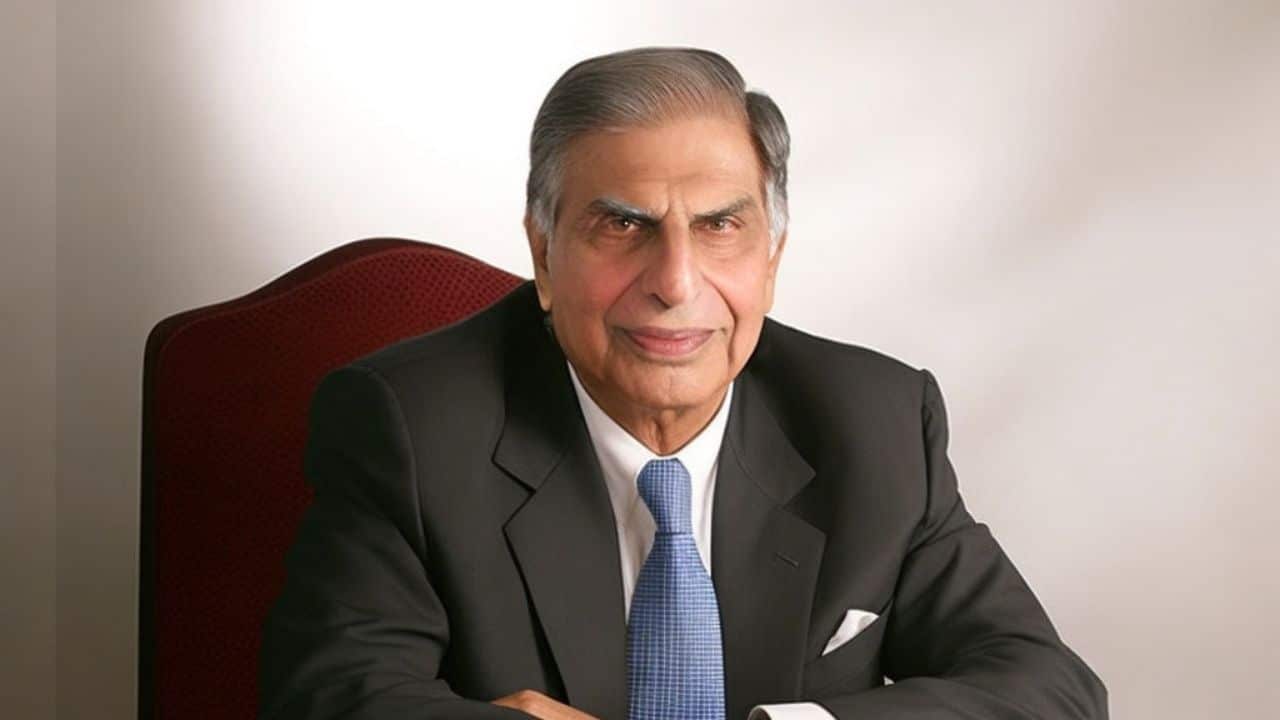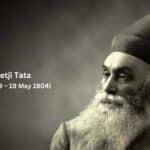Introduction of Sir Ratan Tata Biography
Ratan Tata, an iconic figure in the business world, is widely recognized as one of India’s most influential and visionary leaders.
Born on December 28, 1937, in Mumbai, India, Tata’s journey is nothing short of extraordinary.
His exceptional leadership skills, relentless determination, and commitment to social causes have made him a role model for aspiring entrepreneurs and business leaders globally.
Mr. Ratan Tata – Brief Information
| S.No | Attribute | Information |
|---|---|---|
| 1 | Name | Ratan Tata |
| 2 | Birth | 28 December 1937 |
| 3 | Age | 86 years |
| 4 | Education | Bachelor of Architecture from Cornell University Advanced Management Program from Harvard Business School |
| 5 | Marital Status | Single |
| 6 | Children | None |
| 7 | Mother | Sooni Commissariat (Mother) |
| 8 | Father | Naval Tata (Father) |
| 9 | Occupation | Former Chairperson of Tata Sons and Tata Group, Philanthropist, Investor |
| 10 | Title | Chairman Emeritus, Tata Sons and Tata Group |
| 11 | Predecessor | JRD Tata |
| 12 | Successors | Cyrus Mistry (2012), Natarajan Chandrasekaran (2017–present) |
| 13 | Iconic Awards | Padma Vibhushan (2008), Padma Bhushan (2000) |
| 14 | Net Worth | Rs. 3800 crores |
| 15 | Famous Quotes | “Power and wealth are not two of my main stakes.“ |
| 16 | Philanthropy | Notable contributions to various charitable causes |
| 17 | Business Ventures | Involvement in Tata Group businesses and investments |
| 18 | Hobbies | Interests in flying, fast cars, and scuba diving |
Early life and family background
Ratan Tata was born into a family with a rich legacy. His parents, Naval Tata and Sooni Tata, belonged to a prominent Parsi family renowned for their philanthropic endeavors.
Growing up, Tata imbibed the values of integrity, compassion, and excellence from his parents. Despite being born into privilege, he was taught the importance of humility and giving back to society.
Ratan Tata’s education and career beginnings
Tata’s educational journey laid the foundation for his illustrious career.
He completed his primary education at Campion School in Mumbai and later pursued his higher studies at the Cathedral and John Connon School.
Tata went on to earn a degree in architecture from Cornell University in the United States.
After completing his education, Tata initially started his career with the Tata Group in 1962.
He worked on the shop floor of Tata Steel, where he gained hands-on experience and an in-depth understanding of the business operations.
This early exposure to the company’s operations would prove to be invaluable in the years to come.
Taking over the Tata Group
In 1991, Ratan Tata became the Chairman of the Tata Group, succeeding his uncle, J.R.D. Tata. Under his leadership, the Tata Group witnessed unprecedented growth and expansion.
Tata’s visionary approach and strategic decision-making transformed the conglomerate into a global powerhouse.
During his tenure, Tata spearheaded several landmark acquisitions, such as the purchase of Tetley Tea and Jaguar Land Rover, which propelled the Tata Group’s presence in the global market.
His keen eye for identifying opportunities and his ability to turn around struggling businesses earned him immense respect and admiration.
Ratan Tata’s leadership style and philosophy
Ratan Tata’s leadership style is characterized by his inclusive and participative approach. He believes in empowering his employees and fostering a culture of innovation and collaboration.
Tata’s open-door policy and willingness to listen to diverse perspectives have created an environment conducive to creativity and growth within the Tata Group.
Tata’s leadership philosophy centers around the idea of making a positive impact on society. He once said, “I don’t believe in taking the right decisions.
I take decisions and then make them right.” This reflects his willingness to take calculated risks and his determination to see his decisions through, no matter the challenges that may arise.
Notable achievements and contributions
Ratan Tata’s tenure at the helm of the Tata Group was marked by numerous achievements and contributions.
One of his most significant accomplishments was leading the company’s successful bid for the landmark Nano car project.
The Tata Nano, touted as the world’s cheapest car, aimed to provide affordable transportation to millions of people in India and beyond.
Additionally, Tata’s commitment to corporate social responsibility is exemplified by the Tata Group’s initiatives in the fields of education, healthcare, and sustainable development.
The Tata Trusts, established by the Tata family, have played a pivotal role in improving the lives of marginalized communities across India.
Ratan Tata’s philanthropic efforts
Ratan Tata’s philanthropic endeavors have had a profound and lasting impact on society. Through the Tata Trusts, he has supported numerous initiatives in healthcare, education, and rural development.
The Tata Medical Center, a state-of-the-art cancer hospital in Kolkata, has provided world-class treatment to thousands of patients, regardless of their ability to pay.
Furthermore, Tata’s commitment to education is evident through the establishment of the Tata Institute of Social Sciences and the Tata Institute of Fundamental Research.
These institutions have nurtured young minds and contributed to the advancement of knowledge in various fields.
Challenges faced by Ratan Tata
Like any great leader, Ratan Tata encountered his fair share of challenges during his tenure. One of the most significant hurdles he faced was the global financial crisis of 2008.
The economic downturn had a severe impact on the Tata Group’s international acquisitions, posing a threat to the company’s financial stability.
However, Tata’s resilience and strategic decision-making helped navigate the group through these turbulent times.
Legacy and impact on the business world
Ratan Tata’s legacy extends far beyond his tenure as Chairman of the Tata Group. His visionary leadership, ethical business practices, and commitment to social causes have left an indelible mark on the business world.
Tata’s emphasis on corporate social responsibility has inspired countless organizations to prioritize sustainable development and giving back to society.
Moreover, Tata’s personal integrity and humility have made him a beloved figure not just in India but globally.
His leadership style and philosophy continue to serve as a beacon of inspiration for current and future leaders, emphasizing the importance of empathy, innovation, and ethical decision-making.
Conclusion: Ratan Tata’s enduring influence
Ratan Tata’s biography is a testament to the power of visionary leadership and the impact one individual can have on society.
From his humble beginnings to his remarkable achievements, Tata’s journey inspires us to dream big, work hard, and make a positive difference in the world.
His enduring influence will continue to shape the business landscape for generations to come, reminding us that true leadership is about more than just profit – it is about creating a better future for all.
To delve deeper into Ratan Tata’s early life and family background, you can read here.










